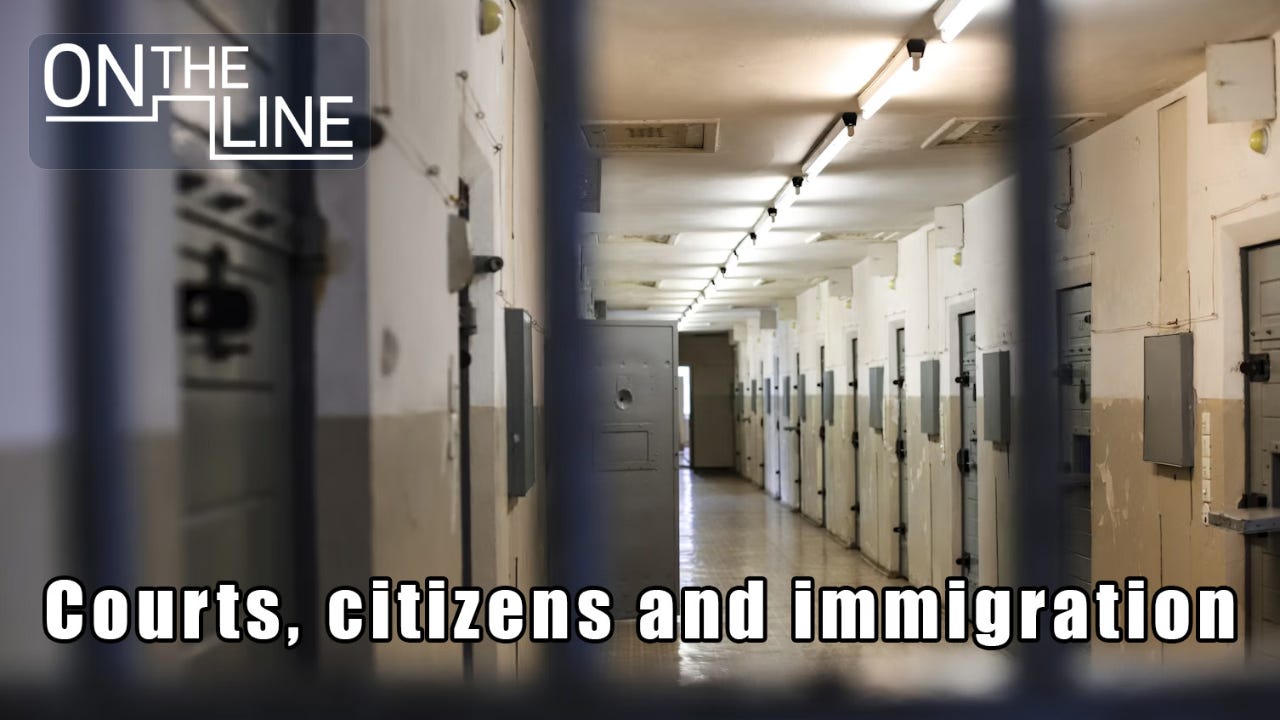In this episode of On The Line, host Matt Gurney sits down with Peter Sankoff, a Alberta-based criminal defence lawyer and law professor, to talk about one of the country’s more heated current debates: should non-citizens receive legal leniency in criminal cases to avoid disrupting their immigration status?
This episode of The Line Podcast is brought to you by Forestry For The Future. Canada’s housing crisis demands bold, scalable solutions. Build Canada Homes is an opportunity to leverage Canadian wood in modern construction. Wood-based methods like mass timber and modular construction can significantly reduce build times, waste, and carbon emissions, while supporting local economies. Expanding building codes, streamlining approvals, and prioritizing domestic wood in federal projects could double demand and foster job creation in rural and northern communities.
Despite trade challenges and market volatility, a partnership between industry and government is vital to stabilize the sector, enhance competitiveness, and deliver innovative, sustainably sourced Canadian wood products for homes across Canada and abroad. With capacity growing across provinces, stable demand and predictable financing are key to unlocking the sector’s potential.We need to Build Canada Homes with Canadian wood. To learn more, visit ForestryForTheFuture.ca.
For context, recent cases have seen judges issue lighter sentences, or defence lawyers argue for them, so that a non-citizen resident of Canada wouldn’t face deportation. These decisions have sparked controversy and political backlash. Conservative MP Michelle Rempel Garner has even tabled a private member’s bill that would prevent judges from taking immigration status into account when handing down sentences.
Matt supported the proposal on Twitter; Peter disagreed. After a spirited exchange online, Peter remarked that the issue was better suited to long-form discussion than social media — so Matt invited him on the show. Together they dig into the controversy itself, why Peter believes judicial discretion is essential and already well-established, and also, moral and fair. Matt points out what he thinks are inconsistencies and blind spots in that argument — the kind that can come from being too close to an issue.
But while they disagree on specifics, both men share a broader concern: that public faith in the justice system is eroding, and not without reason. Peter offers some ideas for how the system could regain public trust.
You can learn more about Peter’s work at Sankoff Criminal Law and his educational platform Criminal Defence Essentials, or find him on LinkedIn.
New episodes of On The Line drop every Tuesday. Subscribe at ReadTheLine.ca, follow us on your favourite podcast app, and don’t forget to leave us a nice review. Audio drops every Tuesday morning, with video rolling out Tuesday evening on YouTube and our social channels. Catch it wherever you listen or watch.
YouTube (video is live, enjoy!:
Spotify:
Apple:
We hope you enjoy this episode, and don’t miss us next week. We’ll be back with more On The Line.
The Line is entirely reader and advertiser funded — no federal subsidy for us! If you value our work, have already subscribed, and still worry about what will happen when the conventional media finishes collapsing, please make a donation today. Please note: a donation is not a subscription, and will not grant access to paywalled content. It’s just a way of thanking us for what we do. If you’re looking to subscribe and get full access, it’s that other blue button!
The Line is Canada’s last, best hope for irreverent commentary. We reject bullshit. We love lively writing. Please consider supporting us by subscribing. Please follow us on social media! Facebook x 2: On The Line Podcast here, and The Line Podcast here. Instagram. Also: TikTok. BlueSky. LinkedIn. Matt’s Twitter. The Line’s Twitter.Jen’s Twitter. Contact us by email: lineeditor@protonmail.com.













